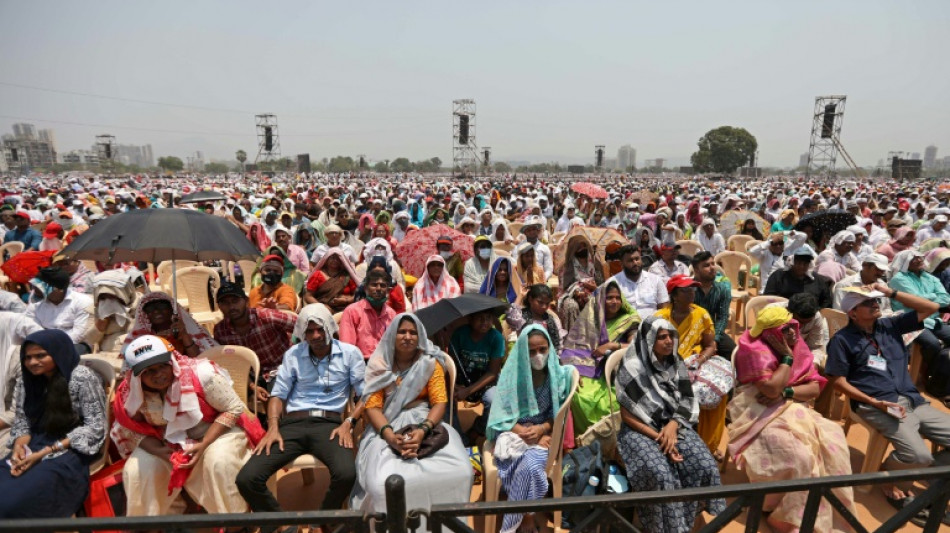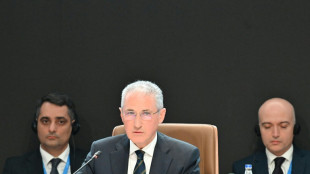
| RBGPF | 100% | 60.1 | $ | |
| SCS | -1.33% | 13.54 | $ | |
| CMSC | -0.65% | 24.57 | $ | |
| RYCEF | -0.29% | 6.78 | $ | |
| CMSD | -0.61% | 24.43 | $ | |
| GSK | -0.38% | 34.02 | $ | |
| RIO | -1.53% | 62.03 | $ | |
| NGG | -0.68% | 62.83 | $ | |
| RELX | 0.51% | 46.81 | $ | |
| AZN | -0.06% | 66.36 | $ | |
| BTI | 1.01% | 37.71 | $ | |
| BCE | -1.46% | 26.63 | $ | |
| BCC | -2.76% | 148.41 | $ | |
| VOD | -0.56% | 8.86 | $ | |
| JRI | -0.98% | 13.24 | $ | |
| BP | -1.24% | 28.96 | $ |

Heatstroke kills 11 at India awards event
Eleven people died of heatstroke in India after an estimated one million spectators waited for hours in the sun at a government-sponsored awards ceremony, officials said on Monday.
Around 20 people were hospitalised and 300 felt ill at the event near the western city of Mumbai on Sunday, when temperatures hit close to 38 degrees Celsius (100 Fahrenheit) with high levels of humidity, local media reported.
Senior government officials attended the ceremony, including Interior Minister Amit Shah, who praised the crowd for waiting so long in the sun.
The office of Maharashtra state Chief Minister Eknath Shinde described it as a "sad and disturbing incident" and promised compensation for the victims' relatives.
India's ruling Bharatiya Janata Party said around a million people attended the event, the Indian Express newspaper reported.
The opposition Congress party accused the government of negligence and said it should face criminal charges.
Heatwaves have killed more than 6,500 people in India since 2010, and last year saw record temperatures in several cities across the country.
The hot spells are becoming harsher and more frequent across South Asia, spurred by climate change, according to scientists.
Authorities in the eastern state of West Bengal announced a week-long shutdown of all schools, colleges and universities from Monday due to the heat, local media reported.
Last year, India suffered coal shortages, the main source of electricity in the nation of 1.4 billion people, as electricity demand peaked in the heat.
Many parts of India rely on trains to supply water during the summer.
Scientists also believe the annual monsoon rainy season is becoming more erratic and powerful, causing greater flooding.
V.Barbieri--IM



